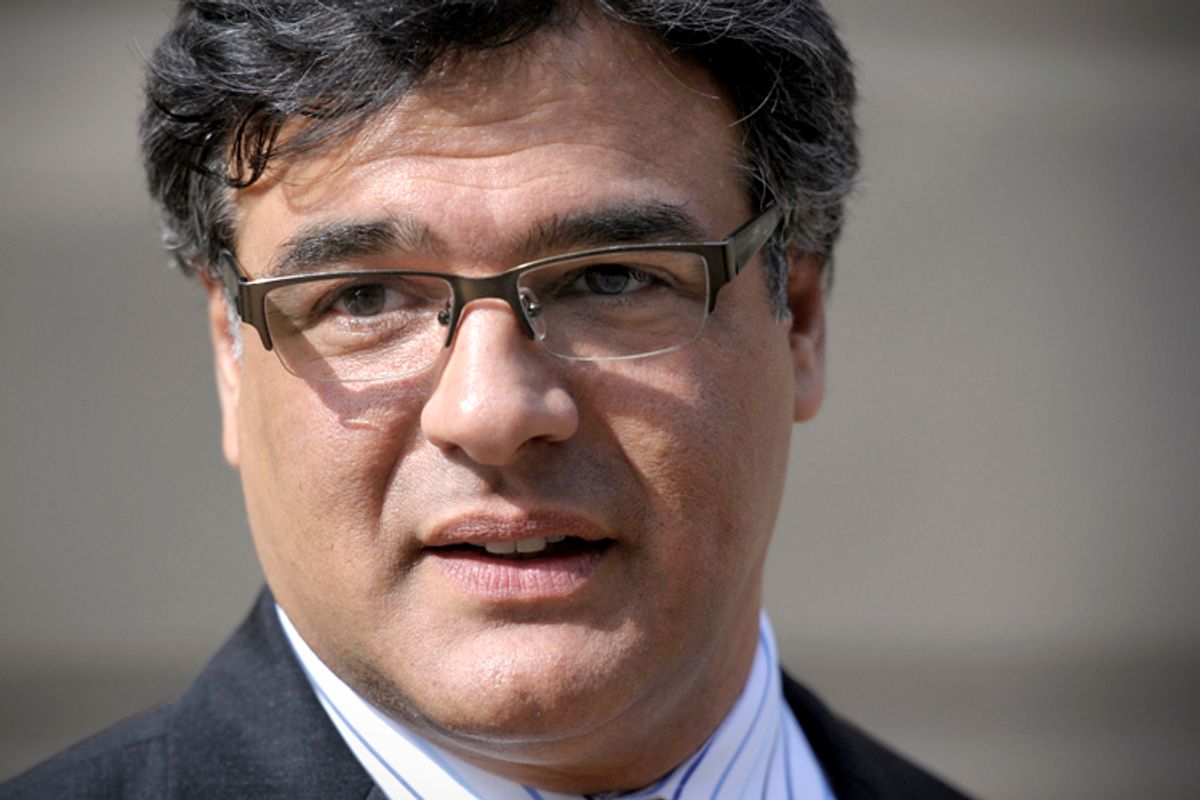Last weekend, the White House accidentally exposed the undercover identity of the CIA’s top officer in Afghanistan by including his name on a list provided to thousands of news organizations of senior U.S. officials involved in President Obama’s visit with our troops. The White House tried to put the toothpaste back in the tube once the Washington Post pointed out the mistake.
This is hardly the first time the U.S. government has blown undercover identities, and not just accidentally. Former CIA Director Leon Panetta revealed the name of the Navy SEAL unit ground commander who carried out the Osama bin Laden raid. He did so at a 2011 awards ceremony attended by the filmmaker of “Zero Dark Thirty,” a Hollywood movie that glorified the bin Laden operation and torture, and was widely criticized as agitprop the government helped create. Panetta also disclosed “secret” and “top secret” classified information on the same occasion, facts documented in a long-delayed Pentagon inspector general’s report.
The most famous “outing” incident in recent memory is when the Bush White House unmasked former CIA operative Valerie Plame in an effort to discredit and punish her husband, who had been a fierce critic of the pretenses for the Iraq War. A criminal investigation ensued, but no one was charged for the leak itself. Scooter Libby, a top aide to Vice President Dick Cheney, was convicted of perjury and obstruction of justice — and sentenced to 30 months in prison — but President Bush commuted the sentence.
These examples stand in stark contrast to former CIA counterterrorism operative John Kiriakou, a casualty of the Obama administration’s war on whistle-blowers (disguised as tough anti-leak investigations, rather than selective and vindictive prosecutions). I represent Mr. Kiriakou and he was the first CIA official to confirm that torture was an official CIA program rather than a pastime, and dared to say that waterboarding was torture.
Less than two months after the Obama administration gave blanket “look forward, not backward” immunity to all CIA officers who participated in torture, Mr. Kiriakou was convicted for telling a reporter the name of a covert CIA officer involved in the program. The officer’s name and his involvement in the “enhanced interrogation” program was well-known among human rights activists and journalists covering the torture beat, and ended up in a classified court filing, not the newspaper. In other words, Mr. Kiriakou is in jail for giving a reporter a name, which was never published, of someone highly-involved in the torture program. The irony is that if Mr. Kiriakou had actually tortured someone, he would not be in jail today.
The U.S. government has always reserved the right to leak classified information to its advantage. Details of the still classified drone program seep out whenever the White House needs to defend its highly questionable legality. In response to the accidental revelation of the Kabul station chief to some 6,000 reporters, the White House has launched an investigation -- not into the person responsible for the leak -- but into the “process” that led to it. When it comes to leaks, the U.S. government has covered itself on both ends. It can engage in both “authorized” and “accidental” leaks, and the culprits receive slaps on the wrists or no ramifications at all.
When a whistle-blower speaks out, however, the Justice Department leaks to smear and discredit him (as in the case of former Ambassador Joseph Wilson) or launches federal “leak investigations” as a pretext to prosecute him under the Espionage Act and make an example of him (as in Kiriakou’s case: the espionage charges were used as a bludgeon to get his plea to the even rarer IIPA charge — he is only the second person in U.S. history to be convicted under that law). The disparity in treatment belies the disturbing reality of “leaks” and “leak investigations”: They are not aimed at protecting information and identities, but at controlling what information makes it into the public discourse. Such an undemocratic result flies in the face of the First Amendment, and it is the whistle-blowers who suffer the personal consequences: careers ruined, families shattered, bankrupted and, in Kiriakou’s case, imprisoned.
The government will no doubt argue that leak cases are evaluated individually, but if equal treatment and proportionality in punishment are key precepts of our criminal justice system, this is an abysmal failure. If we find it at all unfair to severely punish the U.S. Embassy staffer who created the list, or the White House staffer who sent the name of the Kabul station chief to thousands of reporters, then it is far worse to use the criminal justice system to punish a whistle-blower who helped expose one of the most controversial programs of my generation. The outcomes have everything to do with politics and nothing to do with justice. Once again, the government gets a pass and the whistle-blower gets prison -- a chilling message that is exactly what the government wants to send.



Shares